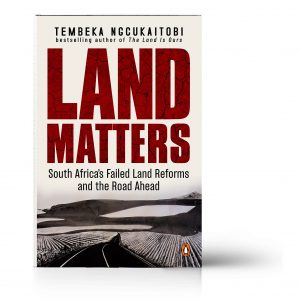New Books | Selected Hồ Chí Minh
In this excerpt from a collection of the revolutionary’s writing, the man who fought for Vietnamese independence advises cadres to stay the distance in land reform programmes.
Author:
19 May 2022

This is a lightly edited excerpt from Selected Hồ Chí Minh, edited by Vijay Prashad (LeftWord Books, 2022).
Addressing the conference reviewing the first land reform drive at Thái Nguyên
12 September 1954
In the land rent reduction and land reform programmes, a number of cadres were very good in implementing the policies, but others made mistakes by following roundabout paths, thus causing a great loss of time, while the results obtained were not up to expectations. Inland rent reduction and land reform, we must fully grasp the policies and political line, clearly know where our main forces lie, base ourselves on the poor and landless peasants, and unite with the middle peasants. That is why the party and government have always pointed out the necessity for unity of the toiling peasants. If this is done, all work will be successfully carried out; if not, our work will not make headway, there will be a time lag, and the results will be poor.
We must know how to discriminate between landlords. They are the peasants’ enemies, but they are not united. If a differentiation can be made, our work will be easier. When this point was studied, many cadres believed that they understood the point; but in practice, their work turned out to be erroneous. Some of them thought it was better to deviate to the “left” than to the “right”. That is not so, for, left or right, either side is far from reality. We must grasp the policies, rely on the masses, and differentiate between landlords.
In your work, you have all obtained a number of achievements despite shortcomings. Your success in this drive is that in applying the three withs, you have been better able to endure hardships. In the fourth rent reduction drive, many cadres only applied the principle of one with or two withs or two and a half withs, but not the complete three withs. It must be realised that only by carrying out the three withs can one become familiar with the peasants, understand their feelings, mobilise them to overthrow landlordism, and successfully carry out land rent reduction and land reform. Without this principle, one stands aloof from the masses and cannot work efficiently. Therefore, in the next drive, you must apply the three withs unreservedly. Generation after generation, our peasants have been doomed to live in poverty. Considering their situation, a few months in which to apply the three withs is an insignificant period. But what else can be done?
Related article:
As far as internal unity is concerned, older cadres must help new cadres. You did it fairly well in this drive. But this does not mean that there were no shortcomings. A number of older cadres were too proud of themselves for having taken part in many drives. They did not take the trouble to study instructions from higher levels and were not willing to help the new cadres. Bear in mind that, as the situation changes constantly, lack of study means regression, and regression means failure.
A rather prevalent mistake is the desire to rest. There are cadres who, after serving in a few drives, now want to settle in towns. They are wrong. Here is an example: “Who has struggled longer, you or I?” Everybody answered: “You.” My struggle was longer, and I never asked for a rest; why do you, after a few drives, want to have a rest?
You want to rest and to settle in the town, because you have not yet realised the importance of land reform. You have certainly read the party’s resolution, “Land reform is one of the three cardinal tasks laid down by the party and the government.” The desire to settle in the town and not to take part in land reform is shirking your duty.
Wherever the party and government send you, you must, at any cost, fulfil the task entrusted to you by them and not follow your own bent.
What do you want? To take part in the revolution! Well, land reform is a revolutionary task. “Don’t believe that the surrounding mountain tops are higher than that on which you are standing.” You must understand that land reform is one of the three primary tasks laid down for the party, the government and the people. It is a glorious and heavy task. The fighter is not only the man who kills the enemy at the front. You are fighters, too, fighters on the anti-feudal front. As fighters, you cannot say that you want to go to this front and not to that front; you must fulfil your duty as a fighter. When land reform is carried through, you will have a rest. As long as it is not achieved, you cannot enjoy one.
Related article:
You must firmly grasp the party’s and government’s policies, overcome difficulties and labour under hardship to discharge your duty.
During the War of Resistance, our army won victory upon victory. As a fighter on the anti-feudal front, you must be resolved to win.
Heroes are not only to be found among the soldiers at the battlefront. They can be found among you, fighting on the anti-feudal front together with the peasants. In this conference, there are people who, during the last land rent reduction and land reform drives, have done good work in linking up their main tasks with mobilising the peasants to increase production, to combat drought and flood, and to engage in voluntary labour or to join the army. With the responsible committee, you will select the best men and women among you; the party, government, and I will reward them.
In the coming mass mobilisation drives for a land rent reduction and land reform, those among you who perform outstanding deeds will be awarded medals, just like soldiers fighting the enemy. It is up to you to decide upon this reward. Those who wish to receive medals must do their best.
Selected Hồ Chí Minh will be launched at The Commune in Braamfontein on 20 May. The book’s editor, Vijay Prashad will be present.


